MercoPress. South Atlantic News Agency
Brazil
-
Tuesday, September 6th 2011 - 06:21 UTC
Latam stocks down; the Real slides to 1.65 dollars

Latin American stocks fell on Monday as fears of a recession in Europe and the United States mixed with anxiety about the health of global banks to drive indexes below support levels, suggesting more losses.
-
Tuesday, September 6th 2011 - 00:41 UTC
Meeting in Buenos Aires to “recondition Argentine missiles” with Brazilian technology
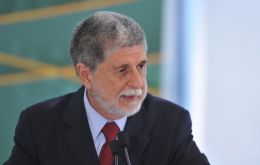
Brazil’s Minister of Defence Celso Amorim is in Buenos Aires for several scheduled meetings this week with his Argentine counterpart Arturo Puricelli and to establish closer ties in defence issues in the framework of Unasur (Union of South American nations).
-
Monday, September 5th 2011 - 01:16 UTC
Brazilian university students fined for promoting a “rodeo of fat girls”

Two Brazilian university students who organized a “rodeo of fat ladies” in the social network under the name of Orkut will have to donate 20 minimum salaries (approximately 6.650 dollars) to organizations that combat chemical dependencies and gender violence.
-
Saturday, September 3rd 2011 - 08:04 UTC
Lula da Silva says Dilma will complete eight years, steps down from 2014 election
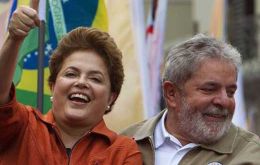
Former Brazilian president Lula da Silva and undisputed leader of the ruling Workers Party said on Friday that President Dilma Rousseff will be governing Brazil for the next eight years and announced he’s stepping down from any further presidential aspiration in 2014.
-
Saturday, September 3rd 2011 - 07:43 UTC
Power failure leaves 13 Brazilian states in the dark; third major outage in 3 years

A failure affecting four transmission lines left four Brazilian regions (thirteen states) partially without electricity on Friday, highlighting the growing strain on the nation's power infrastructure.
-
Saturday, September 3rd 2011 - 00:46 UTC
Brazilian economy slowing down: growth drops to an annualized 3.1%

Brazil's economy expanded at a softer pace in the second quarter as a strong currency fueled a flood of cheap imports and industrial activity had its worst performance since the third quarter of 2009.
-
Friday, September 2nd 2011 - 08:23 UTC
Brazil to reclaim sub-salt oil exploration blocks awarded in 2006 auction
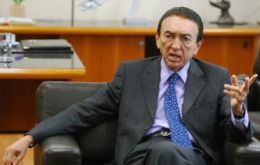
Brazil's government will reclaim promising oil exploration blocks won by companies in a bidding round five years ago but never formally leased to the winners, the country's energy minister Edison Lobao said.
-
Friday, September 2nd 2011 - 05:09 UTC
Record foreign trade activity in Brazil; 8 month surplus equals all 2010

Brazil's trade surplus grew more than expected in August as the value of exports climbed to its highest this year, outpacing strong import growth.
-
Thursday, September 1st 2011 - 08:11 UTC
Brazilian catholic church loosing ground to evangelists, atheists and agnostics
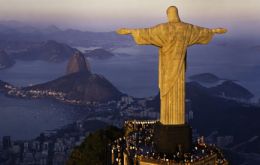
The Brazilian Catholic Church continues to loose ground to the evangelists and those who declare to have no religion, according to the latest survey released by the Social policies centre from the Getulio Vargas Foundation in Rio.
-
Thursday, September 1st 2011 - 02:45 UTC
Brazil unexpectedly cuts interest rate to 12% on risks of EU and US recession
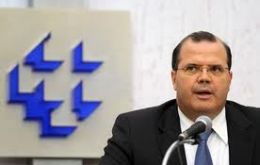
Brazil’s central bank on Wednesday unexpectedly cut interest rates as the risk of recession in Europe and the US shifted policy makers’ focus away from containing the fastest inflation in six years.
